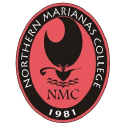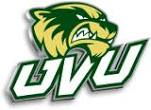What do they do?
Enforce fire regulations, inspect forest for fire hazards, and recommend forest fire prevention or control measures. May report forest fires and weather conditions.
Also known as:
Fire Management Officer, Fire Operations Forester, Fire Prevention Officer, Fire Prevention Technician, Fire Technician, Forest Officer, Forest Patrolman, Forestry Patrolman, Wildfire Mitigation Specialist, Wildfire Prevention Specialist, Wildland Fire Operations Specialist
-
33.3%
Change
Ranks #4 in job growth rate10Job Openings
Ranks #14 in net job growth
-
Anna Maria College
Paxton, MA
-
University of Florida
Gainesville, FL
-
University of Florida-Online
Gainesville, FL
-
Clark State College
Springfield, OH
-
Honolulu Community College
Honolulu, HI
Looking for colleges that offer a specific major? Use the College Match Tool to find your best-matched schools and discover your estimated Net Price!
- Doctorate or Professional Degree (2%)
- Master's degree (5%)
- Bachelor's degree (19%)
- Associate's degree (17%)
- Some college, no degree (29%)
- High school diploma equivalent (24%)
- Less than high school diploma (3%)
People in this career often have these skills:
- Critical Thinking - Using logic and reasoning to identify the strengths and weaknesses of alternative solutions, conclusions, or approaches to problems.
- Speaking - Talking to others to convey information effectively.
- Coordination - Adjusting actions in relation to others' actions.
- Active Listening - Giving full attention to what other people are saying, taking time to understand the points being made, asking questions as appropriate, and not interrupting at inappropriate times.
- Judgment and Decision Making - Considering the relative costs and benefits of potential actions to choose the most appropriate one.
- Complex Problem Solving - Identifying complex problems and reviewing related information to develop and evaluate options and implement solutions.
- Monitoring - Monitoring/Assessing performance of yourself, other individuals, or organizations to make improvements or take corrective action.
People in this career often know a lot about:
- Administration and Management - Knowledge of business and management principles involved in strategic planning, resource allocation, human resources modeling, leadership technique, production methods, and coordination of people and resources.
- Customer and Personal Service - Knowledge of principles and processes for providing customer and personal services. This includes customer needs assessment, meeting quality standards for services, and evaluation of customer satisfaction.
- Education and Training - Knowledge of principles and methods for curriculum and training design, teaching and instruction for individuals and groups, and the measurement of training effects.
- Personnel and Human Resources - Knowledge of principles and procedures for personnel recruitment, selection, training, compensation and benefits, labor relations and negotiation, and personnel information systems.
- Public Safety and Security - Knowledge of relevant equipment, policies, procedures, and strategies to promote effective local, state, or national security operations for the protection of people, data, property, and institutions.
- Law and Government - Knowledge of laws, legal codes, court procedures, precedents, government regulations, executive orders, agency rules, and the democratic political process.
- Computers and Electronics - Knowledge of circuit boards, processors, chips, electronic equipment, and computer hardware and software, including applications and programming.
- English Language - Knowledge of the structure and content of the English language including the meaning and spelling of words, rules of composition, and grammar.
- Transportation - Knowledge of principles and methods for moving people or goods by air, rail, sea, or road, including the relative costs and benefits.
People in this career often have talent in:
- Oral Expression - The ability to communicate information and ideas in speaking so others will understand.
- Problem Sensitivity - The ability to tell when something is wrong or is likely to go wrong. It does not involve solving the problem, only recognizing that there is a problem.
- Oral Comprehension - The ability to listen to and understand information and ideas presented through spoken words and sentences.
- Deductive Reasoning - The ability to apply general rules to specific problems to produce answers that make sense.
- Near Vision - The ability to see details at close range (within a few feet of the observer).
- Written Comprehension - The ability to read and understand information and ideas presented in writing.
- Inductive Reasoning - The ability to combine pieces of information to form general rules or conclusions (includes finding a relationship among seemingly unrelated events).
- Flexibility of Closure - The ability to identify or detect a known pattern (a figure, object, word, or sound) that is hidden in other distracting material.
- Far Vision - The ability to see details at a distance.
- Speech Clarity - The ability to speak clearly so others can understand you.
People in this career often do these activities:
- Relay information about incidents or emergencies to personnel using phones or two-way radios.
- Train personnel to enhance job skills.
- Train personnel on proper operational procedures.
- Train employees in proper work procedures.
- Assess characteristics of fires.
- Direct fire fighting or prevention activities.
- Locate fires or fire danger areas.
- Operate firefighting equipment.
- Patrol natural areas to ensure safety or enforce regulations.
- Monitor environmental conditions to detect hazards.
- Record information about environmental conditions.
- Inspect equipment to ensure safety or proper functioning.
- Maintain inventories of materials, equipment, or products.
- Provide educational information to the public.
- Educate the public about fire safety or prevention.
- Provide safety training.
- Maintain operational records.
- Block physical access to restricted areas.
- Inspect facilities to ensure compliance with security or safety regulations.
- Inspect facilities to ensure compliance with fire regulations.
- Recommend improvements to increase safety or reduce risks.
This page includes data from:

 Occupation statistics: USDOL U.S. Bureau of Labor Statistics Occupational Employment Statistics
Occupation statistics: USDOL U.S. Bureau of Labor Statistics Occupational Employment Statistics









